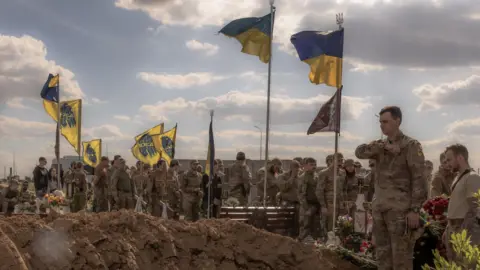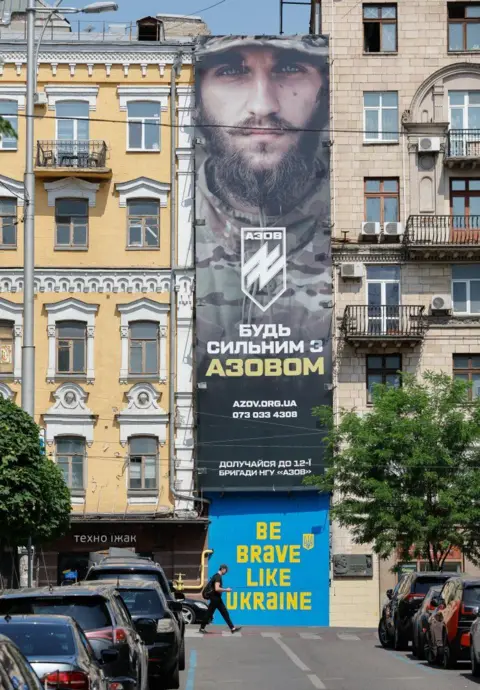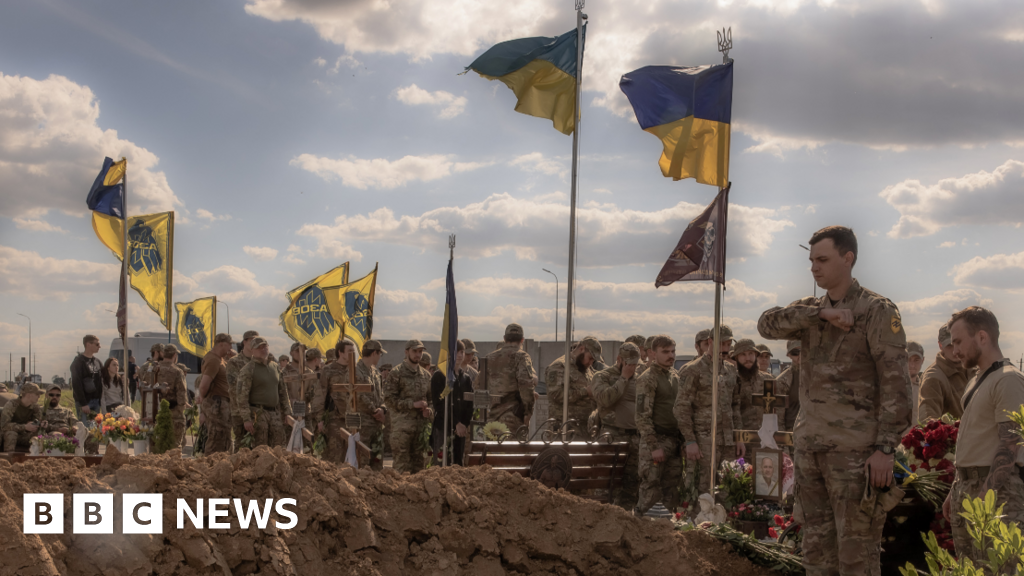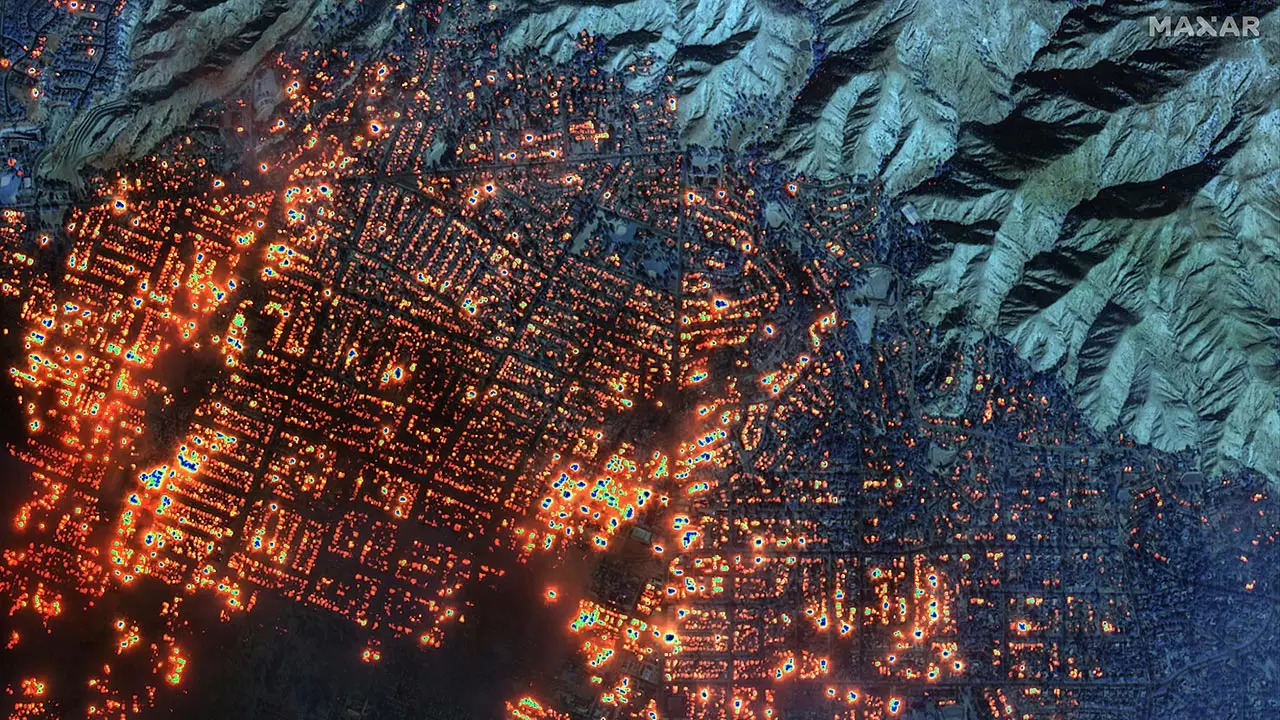By Jaroslav Lukiv, BBC News
 AFP via Getty Images
AFP via Getty ImagesThe US has lifted its long-standing ban on weapons supplies and training to Ukraine’s Azov brigade, whose origins were mired in controversy over alleged links to far-right groups.
A state department spokesman told the BBC a vetting process “found no evidence of gross violations of human rights (GVHR)” by the brigade.
Azov, now a unit within Ukraine’s National Guard, hailed the move, saying Russia’s “lies… received a devastating blow”.
Moscow condemned the decision, with Kremlin spokesman Dmitry Peskov saying the US was “even prepared to flirt with neo-Nazis” to suppress Russia.
Russian President Vladimir Putin has repeatedly made false claims about a “neo-Nazi regime” in Kyiv to try to justify first the annexation of Ukraine’s southern Crimea peninsula and backing of pro-Moscow fighters in the east in 2014, and then his full-scale invasion launched in 2022.
Speaking on the condition of anonymity, the state department spokesman told the BBC that Washington applied a vetting process to the National Guard of Ukraine’s 12th Special Forces Azov Brigade and “found no evidence of gross violations of human rights committed”.
“Russian disinformation attempts to conflate Ukraine’s National Guard Unit of 12th Special Forces Brigade Azov with a militia formed to defend Ukraine against Russia’s invasion in 2014, called the ‘Azov Battalion’.
Under America’s “Leahy Law”, sponsored in 1997 by then-Senator Patrick Leahy, a finding that a foreign military unit has committed gross violations of human rights means it can be cut off from US military assistance.
The US government says it considers torture, extrajudicial killing, enforced disappearance and rape as such types of violations when implementing the law.
 EPA-EFE/REX/Shutterstock
EPA-EFE/REX/ShutterstockReacting to the US decision, Azov said in a statement: “The lies about Azov, which the Kremlin regime have been spreading in the West for years, received a devastating blow today.
“Receiving Western weapons and training from the US will not only increase the combat capability of Azov, but most importantly, will contribute to the preservation of the lives and health of the personnel of the brigade.”
A volunteer militia battalion called Azov was originally set up in May 2014 to fight Russian-backed forces in Ukraine’s eastern Donbas region. Later that year it was briefly incorporated as a separate regiment in Ukraine’s interior ministry before being transferred to the National Guard.
Some members of the original battalion were reported to have had links to far-right and ultra-nationalist groups at the time – but a number of them, including the first commander, later left the unit.
The US banned the regiment from receiving US weapons for the alleged links to the far right.
In 2016, a UN report accused the Azov regiment of “looting of civilian property, leading to displacement” in eastern Ukraine.
The current leadership of the Azov brigade says its members have no ties to far-right organisations or any other extremist groups – a claim that has not been independently verified.
Azov fighters are seen by many in Ukraine as national heroes for defending for months the southern city of Mariupol from a brutal Russian assault.
The port on the Sea of Azov was eventually taken by Moscow in May 2022.
Many Azov soldiers are still being held by Russia as prisoners of war, amid accusations that the Ukrainians have been subjected to torture in captivity.






















Discussion about this post